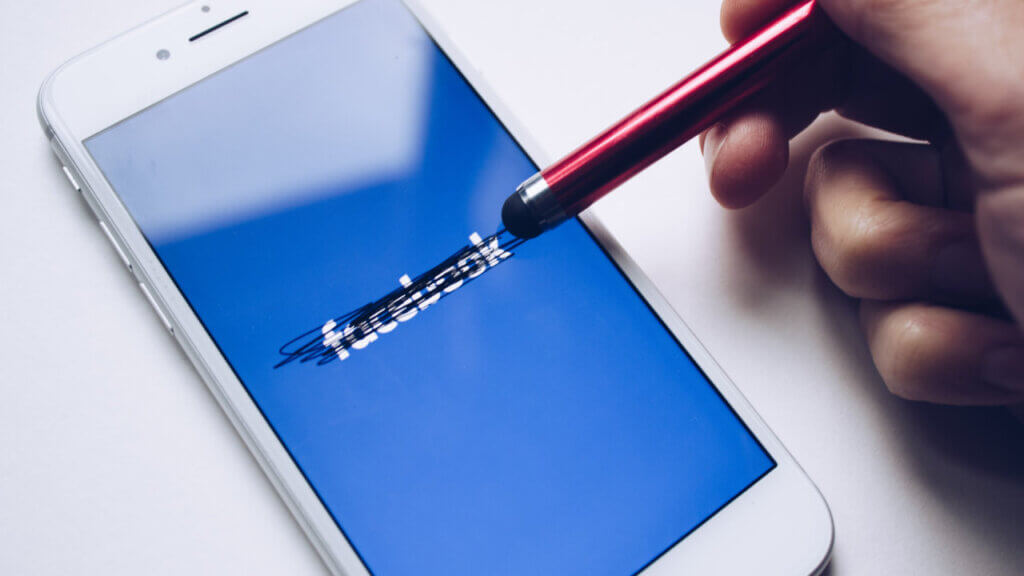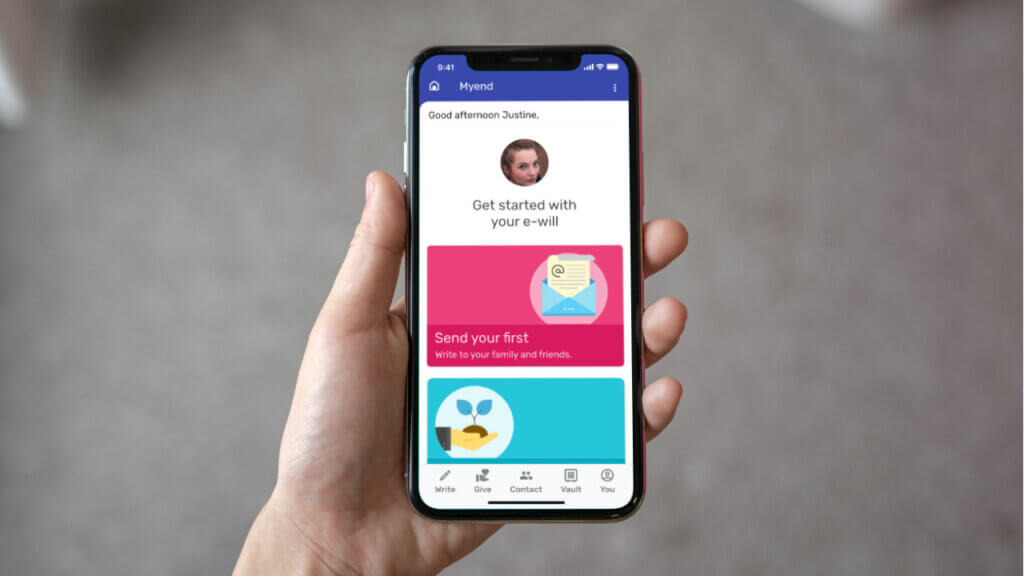Managing your Digital Legacy
Over the past two decades our lives have gotten significantly entrenched in the digital space. There’s email, online banking, social media, photo albums and so much more. Ever thought about what happens to all of that once you die? Unfortunately or fortunately, we’re not so intertwined yet that our digital footprint dies with us when we breathe our last breath. So it makes sense to have a plan for your digital assets. Start with lining up everything you have online or stored in your devices, and then decide what should happen to it.
To help you in this process we’ll go through some of the main matters you should think about.
What does your Digital Legacy consist of?
Your digital legacy consists of many different parts. For some of them you probably didn’t even realize you have them or that they might be difficult to access. Let’s start with an obvious one:
1. Social Media
You’re probably on one or more social media platforms. Aside from the famous Facebook, Instagram and Twitter, there’s also others you might not think of straight away, such as Quora, Soundcloud, Vimeo, dating apps or language learning apps.
There are multiple options when it comes to your social profiles if you don’t want them to stay active: some platforms allow for your account to be memorialized, you can ask someone you trust to delete your account, or your account can be automatically deleted after a period of inactivity. Let’s take a look at some examples:
Setting your preferences before you die
Facebook and Instagram
Facebook and Instagram allow you to determine before you die what you want to happen after that. You can have your accounts either memorialized or deleted. Memorializing your account will make it clear to the public that your account is that of a deceased person. In Settings you can find the option ‘Decide what happens to your account when you pass away.’ Here you can read a step-by-step guide on how to do this.
Google and Youtube
You can use Google’s Inactive Account Manager, which allows you to leave instructions on what to do with your information in case you remain inactive for a particular length of time. You can choose this time period and which details and data can be shared.
Having someone request your account to be deleted
Twitter, LinkedIn, Snapchat and Pinterest
If you’d like to delete your account once you die, a family member can submit a request. They will not get direct access to your account, as is the case for most online platforms. That’s why it can be important to leave your login details with someone you trust.
Inactivity Policy
Twitter, Instagram, Reddit and Tinder
Some networks periodically delete inactive accounts to free up unused handles and limit the chance of account hacking. In the terms and conditions or user policies of the specific platforms you can probably find for how long your account remains active until it gets deactivated or deleted.
No Policy
TikTok and Reddit
Some social platforms, such as TikTok and multiple dating apps, simply don’t have a policy for when accounts become inactive or users die. Appoint someone you trust to delete your accounts after you die and leave them your username and password. If you are not comfortable with leaving your account in somebody else’s hands, you can leave instructions for in case these platforms change their policy and make memorializing or deleting a deceased’s account possible.
For more specific information on your social accounts, check out this article.

2. Personal Media: Photos, Videos, Music, Journals, Art
Aside from social media, a big part of our lives is nowadays stored in our personal media. Think of all those pictures and videos in your iCloud or the notes in your journaling app. If you’re a creative or a researcher, this collection will be even bigger: maybe you have recorded music or research data files on your drive, designs on your tablet or digital drawings in an app. In your day-to-day you might not give it much of a thought, but these are things that could become of enormous value to your loved ones when you pass away.
For some people, their digital libraries will be a mess. On the contrary, for others it might be carefully organized and backed up multiple times. In both cases those files might be hard to access for anyone other than you. So, no matter if you’re the organized or the messy kind, making sure others can access your precious memories and materials requires a moment of thought.
Think of all those great artists who’ve had (part of their) work made public after their death: Da Vinci, Vincent van Gogh, Galileo Galilei, Emily Dickinson, Freddie Mercury, Mac Miller. What if they had their work saved in a hard drive with a password they took to their grave? 😢
Look up the policies to your cloud storing services. Some of the most well-known cloud storing companies, such as Dropbox and Apple, won’t make it easy for others to access your accounts. Here you can read how their policies might cause your data to be deleted forever.
To avoid this from happening, you can store your passwords and login names in your Myend Vault. You can assign specific accounts to people you trust and they will only get access after you die. On top of that, you can also leave detailed instructions for them.
You can also use it as an opportunity to create some order. Consider if you can throw some of it away, if there is anything you don’t want your loved ones to see, who you’d like to have access to your files and how to ensure your most valuable digital assets are secure.
3. Online accounts: Email, Website, Webshop
Speaking of Apple, your Apple ID is more than just your iCloud. It also controls your Apple Pay, iTunes, email inbox and possibly more. If your Apple ID is deleted after your death, all of that will get lost as well. Try to think of everything you access online with an account and password: having access to your email inbox might be very useful for your family once you pass.
For instance, they can contact people to invite to your funeral or handle incoming requests. They can also cancel subscriptions or make sure your business keeps running. Another example is a website that you host or a webshop you run. For things to keep going smoothly, someone else might need the admin keycodes. Passing these on once you are gone, could prevent a lot of headaches.
4. Financial accounts: online banking, business tools
Then there is, of course, online banking and accounting. It is advised to have anything money-related in a legally binding Last Will. But just in case there is something you missed or an account has changed: if you put the access keys in a Vault, your loved ones have the power to take care of it.
5. Online entertainment: betting, gaming, Netflix, Spotify
From TV, books and board games, many of us have moved onto Netflix, ibooks, online gaming and Spotify. It might not be the first thing that comes to mind, but many of them are protected with an account and password.
Maybe you were sharing a Netflix account but never shared the password, maybe you’re the only one that knows the code to change the settings of the TV, maybe you always streamed your lovely Spotify playlists straight from your phone. Your playlist, your Netflix recommendations, the list of books you used to talk excitedly about, these are things that are personal and could be just the right combination of nostalgia, closeness and distraction that your loved ones need once you pass.
6. Devices
Your devices might be the key to everything. And since you won’t be around anymore to unlock them with your face ID or fingerprint, you might want to pass on their passwords. In the Myend Vault you can store as many devices as you like: your phone, desktop, laptop, tablet, digital (house) lock, et cetera.
7. Browser history
One last thing to think about when it comes to your digital legacy. The one we usually DON’T want to leave behind. Whatever is in there, it might not be exactly right for your mother to see when you want her to remember you as the innocent person you were. We can help you with that: just leave a note to a Legacy Contact asking them to delete your browser history. You’re welcome. 😉
Preparing the Digital Legacy you leave behind
Now that you’ve gotten an idea of everything that goes into your Digital Inheritance, you can prepare to hand it over one day in 3 simple steps:

How to assign items to beneficiaries
Store passwords and logins in Vaults.
- Store passwords and logins in Vaults - List all your accounts and passwords. Remember that it is very rare for companies to provide login details of a deceased person.
- Assign contacts to your accounts - Choose who has access to which parts of your digital legacy.
- Leave instructions - Add a note on what to do with the accounts if you have specific wishes.
One great advantage of Vaults is that you can always change the passwords you stored in a second if you change them during your lifetime. So, make sure to also go to Myend when this happens or go through your passwords every once in a while to make sure they’re still correct.
Final Thoughts
Working on your digital legacy may sound like a chore but it’s probably one of the best ways to realize how much you have. And also feel in charge of your future in a sense. If you’re curious to explore more of Myend’s features. have a look here.
Ready to experience our revolutionary services for yourself? Then sign up today for free!